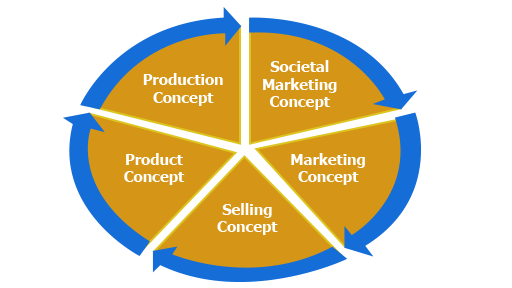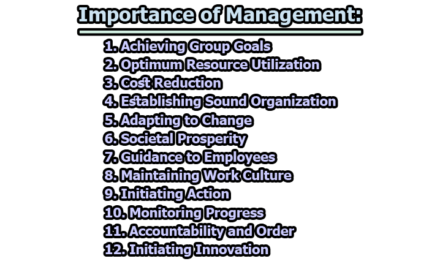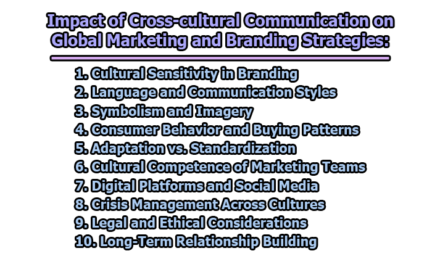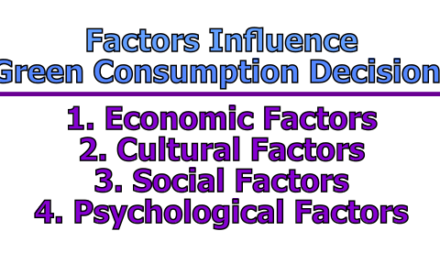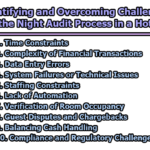Five Key Concepts in Marketing Management:
Marketing management involves the planning, implementation, and control of activities designed to bring about desired exchanges with target markets for the purpose of achieving organizational objectives. Over the years, various marketing concepts have evolved to guide businesses in their approach to creating value for customers and achieving success. In this article, we will explore five key concepts in marketing management: Production Concept, Product Concept, Selling Concept, Marketing Concept, and Societal Marketing Concept.
1. Production Concept:
The Production Concept in marketing management emerged during the mid-1950s and revolves around the idea of market domination through efficient production and manufacturing processes. At its core, this concept is rooted in the belief that consumers prioritize products that are widely available and affordable. The driving force behind the Production Concept is the notion that customers will choose products that are easily accessible and reasonably priced, and companies should focus on optimizing production efficiency to meet this demand.
1.1 Key Characteristics:
- Economies of Scale: The Production Concept places a strong emphasis on achieving economies of scale. Businesses strive to produce large quantities of goods at lower costs per unit, with the expectation that mass production will lead to increased overall profits.
- Cost Efficiency: Efficiency in production processes is a central tenet of this concept. Companies seek to minimize production costs through streamlining manufacturing processes, bulk purchasing of raw materials, and maximizing the utilization of resources.
- Wide Distribution: To satisfy the demand for mass-produced goods, companies adopting the Production Concept often prioritize establishing extensive distribution channels. The goal is to make products available in various locations to reach a larger consumer base.
- Affordability: Products produced under the Production Concept are designed to be affordable to a broad spectrum of consumers. The focus is on offering competitive prices to attract a large number of customers, assuming that affordability is a primary driver of consumer choices.
1.2 Critiques and Limitations:
- Neglect of Consumer Preferences: One of the criticisms of the Production Concept is its tendency to overlook the importance of understanding and responding to specific consumer preferences. While efficiency in production is crucial, ignoring the diverse needs and desires of consumers may lead to a mismatch between the produced goods and actual market demand.
- Quality Concerns: In the pursuit of cost efficiency, there is a risk that the Production Concept may compromise product quality. Overemphasizing production speed and cost-cutting measures may result in products that do not meet the expectations of consumers who value quality over sheer availability.
- Changing Market Dynamics: As markets have become more competitive and consumer preferences more nuanced, the Production Concept’s simplistic focus on availability and affordability has diminished in relevance. Modern consumers often prioritize factors such as product quality, brand reputation, and overall customer experience.
1.3 Adaptation Over Time: While the Production Concept was influential in its time, especially when demand exceeded supply, its applicability has waned in contemporary markets. Businesses have recognized the need to integrate elements of customer-centric approaches, such as the Marketing Concept, to remain competitive and responsive to evolving consumer expectations. The Production Concept, nevertheless, played a crucial role in shaping early marketing strategies and laid the groundwork for subsequent conceptual developments in marketing management.
2. Product Concept:
The Product Concept in marketing management represents an approach that assumes customers primarily prefer products with higher quality and are willing to pay a premium for these superior attributes. This concept gained prominence during a period when technological advancements allowed companies to focus on product innovation and differentiation. Businesses subscribing to the Product Concept believe that a product’s success is determined by its quality, features, and performance rather than other factors like price or availability.
2.1 Key Characteristics:
- Innovation and Quality Focus: The Product Concept places a strong emphasis on continuous product innovation and enhancement of quality. Companies strive to develop cutting-edge features, superior functionalities, and innovative designs to set their products apart from competitors.
- Premium Pricing: Products developed under the Product Concept often come with a higher price tag. The assumption is that customers are willing to pay more for the perceived superiority, advanced features, or exceptional quality associated with the product.
- Brand Reputation: Building a strong brand reputation becomes crucial under the Product Concept. Companies invest in marketing and branding efforts to create an image of exclusivity and excellence, reinforcing the idea that their products are of higher quality.
- Technical Expertise: Companies adhering to the Product Concept typically invest heavily in research and development to stay at the forefront of technological advancements. Technical expertise becomes a competitive advantage, allowing the company to lead in terms of product innovation.
2.2 Critiques and Limitations:
- Cost Concerns: The Product Concept’s focus on quality and innovation can lead to higher production costs. This may result in premium pricing that could alienate a portion of the market, especially price-sensitive consumers.
- Overlooking Other Customer Needs: While quality is undoubtedly important, the Product Concept sometimes neglects other factors that influence purchasing decisions, such as customer service, convenience, or emotional appeal. A myopic focus on product features may lead to a lack of holistic understanding of customer preferences.
- Market Saturation: In markets where product categories are saturated with similar high-quality offerings, differentiation becomes challenging. Companies may find it difficult to stand out solely based on product features, leading to increased competition and pressure on profit margins.
2.3 Adaptation Over Time: While the Product Concept remains relevant in industries where technological innovation is paramount, it has evolved to incorporate a more holistic understanding of customer needs. Modern marketing strategies often integrate elements of both the Product Concept and the Marketing Concept, recognizing that a comprehensive approach is essential for long-term success. This blending allows companies to offer high-quality products while also addressing broader customer expectations and market dynamics.
3. Selling Concept:
The Selling Concept in marketing management represents an approach that focuses on making actual sales without giving primary consideration to product quality or customer needs. This concept assumes that aggressive promotional and selling efforts are necessary to convince consumers to purchase a product, regardless of whether it truly fulfills their needs or preferences. The Selling Concept was particularly influential in industries where competition was high, and companies needed to actively push their products to secure market share.
3.1 Key Characteristics:
- Aggressive Sales Techniques: The Selling Concept is characterized by a proactive and aggressive approach to sales. Companies employing this concept invest heavily in promotional activities, advertising, and sales tactics to stimulate immediate purchasing decisions.
- Short-Term Orientation: This concept often adopts a short-term perspective, focusing on achieving immediate sales goals rather than building long-term relationships with customers. The emphasis is on converting leads into sales quickly.
- Product-Centric Approach: The Selling Concept tends to be more product-centric, with a belief that persuasive selling techniques can overcome potential shortcomings in product quality or relevance to customer needs.
- High Sales Pressure: Sales teams under the Selling Concept may apply high-pressure tactics to close deals swiftly. This approach assumes that creating a sense of urgency will lead to more immediate sales.
3.2 Critiques and Limitations:
- Customer Relationship Neglect: The Selling Concept’s intense focus on making sales often comes at the expense of building strong, enduring relationships with customers. This can result in a transactional approach that fails to consider the long-term value of customer loyalty.
- Potential for Mismatched Products: The emphasis on selling rather than understanding customer needs may lead to mismatches between products and consumer expectations. This can result in high product returns, dissatisfied customers, and damage to the brand reputation.
- Changing Consumer Behavior: In contemporary markets, consumers are more informed and discerning. High-pressure selling tactics may be perceived as intrusive and pushy, leading to a negative impact on the brand image.
3.3 Adaptation Over Time: While the Selling Concept was prevalent in the past, it has evolved in response to shifts in consumer behavior and market dynamics. Modern marketing strategies recognize the importance of balancing sales efforts with a customer-centric approach. Businesses now focus on understanding customer needs, building trust, and fostering long-term relationships, realizing that sustained success requires more than just aggressive sales tactics. The evolution towards relationship-oriented marketing is evident in the integration of customer-centric concepts like the Marketing Concept into contemporary marketing practices.
4. Marketing Concept:
The Marketing Concept in marketing management represents a paradigm shift from product-centric approaches to a customer-centric philosophy. This concept recognizes that the key to business success lies in understanding and satisfying customer needs and wants. Unlike previous concepts that primarily emphasized production efficiency, product quality, or aggressive sales, the Marketing Concept places the consumer at the center of all business activities.
4.1 Key Characteristics:
- Customer-Centric Approach: At the core of the Marketing Concept is a commitment to understanding and satisfying customer needs. Businesses adopting this concept actively seek to align their products, services, and marketing strategies with the preferences and desires of their target audience.
- Integrated Marketing Activities: The Marketing Concept involves the integration of all marketing activities to deliver superior customer value. This includes product development, pricing strategies, distribution channels, and promotional efforts, all aimed at meeting and exceeding customer expectations.
- Long-Term Relationship Building: Unlike the short-term orientation of some previous concepts, the Marketing Concept emphasizes building long-term relationships with customers. Satisfied customers are more likely to become repeat buyers and advocates for the brand.
- Market Research and Analysis: Companies following the Marketing Concept invest in comprehensive market research to gain insights into consumer behavior, preferences, and trends. This data-driven approach enables businesses to make informed decisions and adapt their strategies to evolving market conditions.
4.2 Critiques and Limitations:
- Resource Intensive: Implementing the Marketing Concept requires substantial resources for market research, customer relationship management, and ongoing adaptation to changing consumer needs. Smaller businesses with limited resources may find it challenging to fully embrace this concept.
- Potential for Overemphasis on Customer Wants: Critics argue that an exclusive focus on meeting customer wants may lead to complacency in innovation. Businesses may become reactive rather than proactive, potentially missing opportunities for groundbreaking advancements.
- Market Complexity: In dynamic markets with rapidly changing trends and preferences, it can be challenging for companies to keep up with the pace of change. This may lead to difficulties in consistently delivering on customer expectations.
4.3 Adaptation Over Time: The Marketing Concept has become a foundational principle for modern marketing strategies. Recognizing the importance of customer satisfaction and loyalty, businesses today integrate elements of the Marketing Concept into their operations. Advances in technology, particularly in data analytics and customer relationship management, have facilitated a more nuanced and personalized application of the Marketing Concept. As markets continue to evolve, the emphasis on understanding and fulfilling customer needs remains a cornerstone of successful marketing management.
5. Societal Marketing Concept:
The Societal Marketing Concept is a more recent addition to the spectrum of marketing management philosophies, emphasizing not only meeting customer needs but also considering broader societal well-being and environmental impact. This concept recognizes that businesses operate within a larger social context and have responsibilities beyond mere customer satisfaction. It encourages companies to actively engage in practices that contribute positively to both the community and the environment.
5.1 Key Characteristics:
- Holistic Approach: The Societal Marketing Concept takes a holistic approach by considering the impact of business activities on society and the environment. It encourages companies to go beyond profit-making goals and contribute to the overall well-being of the communities they serve.
- Customer and Societal Value: In addition to delivering superior customer value, businesses adhering to the Societal Marketing Concept aim to contribute to societal value. This may involve ethical business practices, corporate social responsibility initiatives, and environmentally sustainable operations.
- Ethical Considerations: Ethical considerations play a central role in the Societal Marketing Concept. Companies are expected to operate with transparency, fairness, and integrity, taking into account the ethical implications of their decisions on both customers and society at large.
- Environmental Responsibility: Businesses adopting the Societal Marketing Concept prioritize environmentally sustainable practices. This includes reducing carbon footprints, minimizing waste, and exploring eco-friendly alternatives in product development and manufacturing.
5.2 Critiques and Limitations:
- Implementation Challenges: While the idea of societal well-being is commendable, implementing the Societal Marketing Concept can be challenging. Balancing the often conflicting demands of profit-making and socially responsible practices requires careful consideration and strategic planning.
- Potential for Greenwashing: Some critics argue that businesses may engage in “greenwashing” – presenting a false image of environmental responsibility – without making substantial changes to their operations. This poses a risk of eroding consumer trust.
- Competitive Disadvantage: Companies embracing the Societal Marketing Concept may face higher production costs associated with ethical and sustainable practices. In competitive markets where price considerations are significant, this could pose challenges to profitability.
5.3 Adaptation Over Time: The Societal Marketing Concept reflects a growing awareness of the interconnectedness between business activities, consumer expectations, and broader societal and environmental concerns. While challenges exist in its implementation, businesses increasingly recognize the importance of social responsibility. Many successful companies today integrate elements of the Societal Marketing Concept into their strategies, acknowledging the role they play in creating a positive impact on society and the environment. As consumer awareness and expectations evolve, the societal dimension of marketing continues to gain significance in shaping responsible and sustainable business practices.
In conclusion, the evolution of marketing concepts reflects the dynamic nature of markets and the changing expectations of consumers. From the early focus on production efficiency to the contemporary emphasis on societal well-being, businesses have come a long way in understanding the importance of customer satisfaction and responsible business practices. Today, successful marketing management integrates elements of these concepts, recognizing the need for a holistic approach that balances customer needs, social responsibility, and long-term profitability.

Former Student at Rajshahi University

